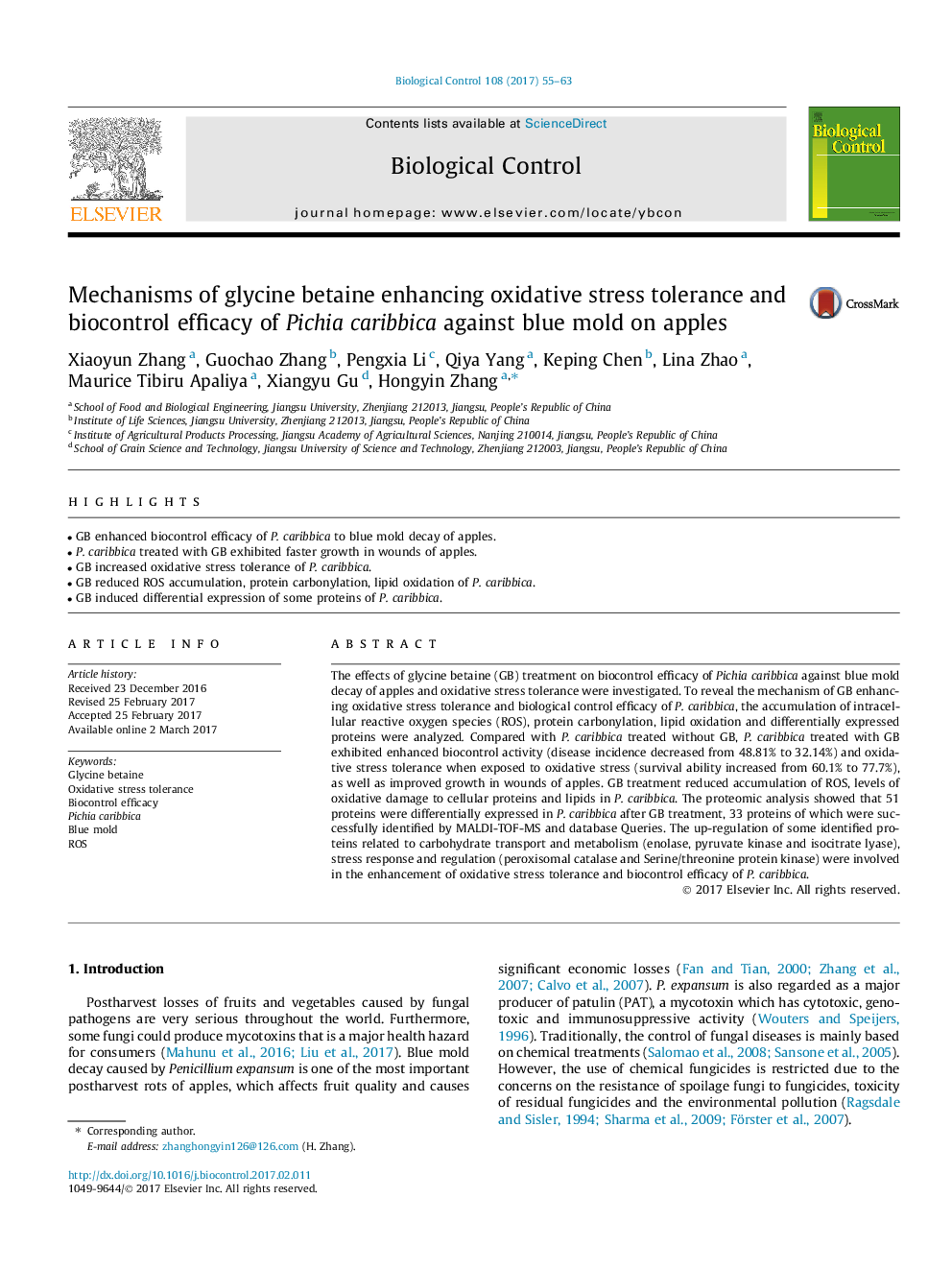| Article ID | Journal | Published Year | Pages | File Type |
|---|---|---|---|---|
| 5760752 | Biological Control | 2017 | 9 Pages |
Abstract
The effects of glycine betaine (GB) treatment on biocontrol efficacy of Pichia caribbica against blue mold decay of apples and oxidative stress tolerance were investigated. To reveal the mechanism of GB enhancing oxidative stress tolerance and biological control efficacy of P. caribbica, the accumulation of intracellular reactive oxygen species (ROS), protein carbonylation, lipid oxidation and differentially expressed proteins were analyzed. Compared with P. caribbica treated without GB, P. caribbica treated with GB exhibited enhanced biocontrol activity (disease incidence decreased from 48.81% to 32.14%) and oxidative stress tolerance when exposed to oxidative stress (survival ability increased from 60.1% to 77.7%), as well as improved growth in wounds of apples. GB treatment reduced accumulation of ROS, levels of oxidative damage to cellular proteins and lipids in P. caribbica. The proteomic analysis showed that 51 proteins were differentially expressed in P. caribbica after GB treatment, 33 proteins of which were successfully identified by MALDI-TOF-MS and database Queries. The up-regulation of some identified proteins related to carbohydrate transport and metabolism (enolase, pyruvate kinase and isocitrate lyase), stress response and regulation (peroxisomal catalase and Serine/threonine protein kinase) were involved in the enhancement of oxidative stress tolerance and biocontrol efficacy of P. caribbica.
Related Topics
Life Sciences
Agricultural and Biological Sciences
Agronomy and Crop Science
Authors
Xiaoyun Zhang, Guochao Zhang, Pengxia Li, Qiya Yang, Keping Chen, Lina Zhao, Maurice Tibiru Apaliya, Xiangyu Gu, Hongyin Zhang,
